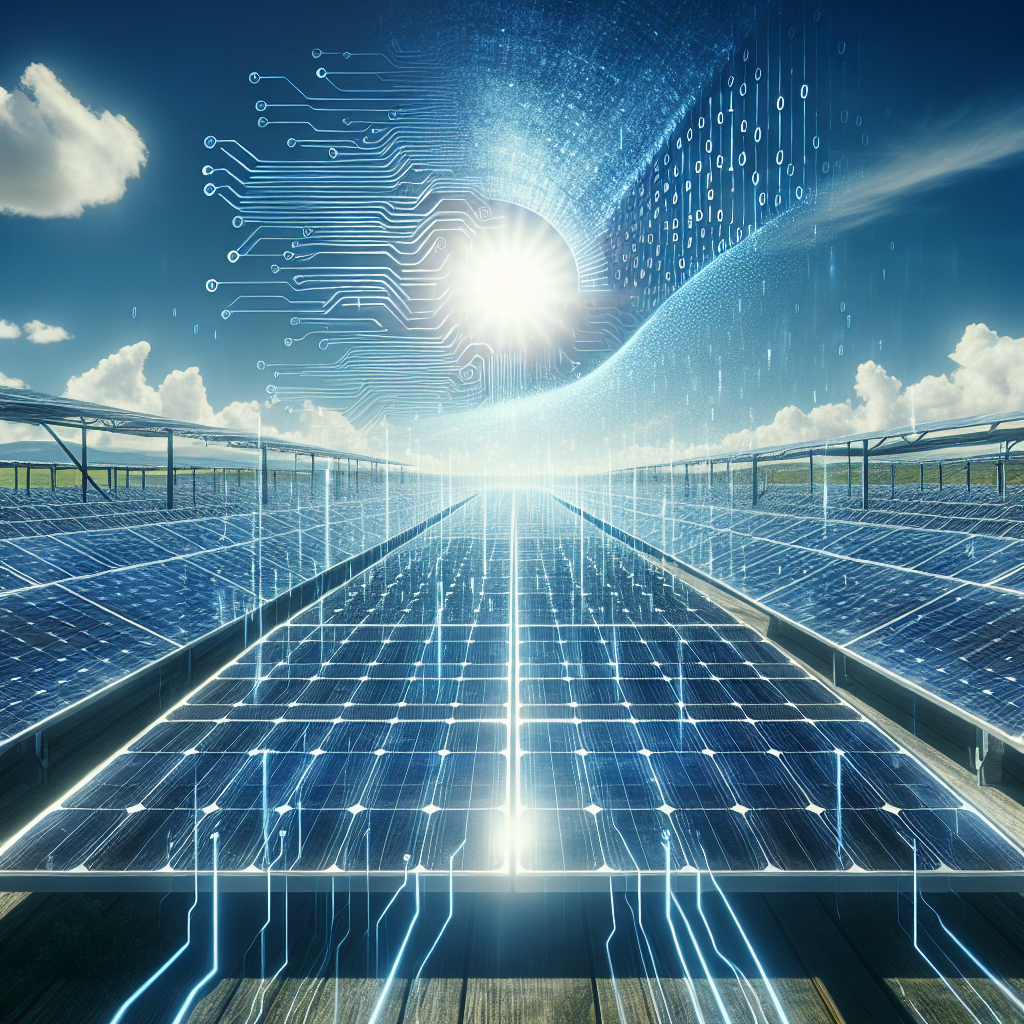Harnessing the Power of AI for Solar Energy Optimization
In recent years, the use of artificial intelligence (AI) has become increasingly prevalent in various industries, including the renewable energy sector. One of the most promising applications of AI in renewable energy is in the optimization of solar energy systems. By leveraging AI algorithms, solar energy producers can maximize the efficiency and output of their solar panels, leading to increased energy production and cost savings.
AI for Solar Energy Optimization: How Does it Work?
AI algorithms can be used to analyze a wide range of data, including weather patterns, solar panel performance, energy consumption patterns, and more. By processing this data, AI can identify patterns and trends that humans may overlook, allowing for more accurate and efficient optimization of solar energy systems.
One of the key ways in which AI can optimize solar energy systems is through predictive maintenance. By monitoring the performance of solar panels in real-time, AI algorithms can detect potential issues before they occur, allowing for proactive maintenance and minimizing downtime. This can help to extend the lifespan of solar panels and ensure consistent energy production.
AI can also be used to optimize the positioning of solar panels for maximum sunlight exposure. By analyzing data on the position of the sun, weather conditions, and shading from nearby structures, AI algorithms can determine the optimal angle and orientation for each solar panel. This can significantly increase the efficiency of the solar energy system and maximize energy production.
Furthermore, AI can be used to optimize the storage and distribution of solar energy. By analyzing energy consumption patterns and grid demand, AI algorithms can determine the most efficient way to store excess energy generated by solar panels and distribute it when needed. This can help to reduce energy waste and increase the overall efficiency of the solar energy system.
The Benefits of AI for Solar Energy Optimization
There are several key benefits to harnessing the power of AI for solar energy optimization. Some of the most significant advantages include:
1. Increased energy production: By optimizing the performance of solar panels and maximizing sunlight exposure, AI can help to increase the energy production of solar energy systems. This can lead to higher energy output and cost savings for solar energy producers.
2. Improved efficiency: AI algorithms can help to identify and address inefficiencies in solar energy systems, leading to improved overall efficiency. This can result in reduced energy waste and increased sustainability.
3. Proactive maintenance: AI can enable proactive maintenance of solar panels, helping to prevent issues before they occur. This can help to extend the lifespan of solar panels and reduce maintenance costs.
4. Cost savings: By optimizing energy production and efficiency, AI can help to reduce operational costs for solar energy producers. This can lead to significant cost savings over time.
5. Environmental impact: By increasing the efficiency of solar energy systems, AI can help to reduce the environmental impact of energy production. This can contribute to a more sustainable and environmentally friendly energy sector.
FAQs
Q: How does AI optimize the positioning of solar panels?
A: AI algorithms analyze data on the position of the sun, weather conditions, shading from nearby structures, and other factors to determine the optimal angle and orientation for each solar panel.
Q: Can AI help to reduce energy waste in solar energy systems?
A: Yes, AI algorithms can analyze energy consumption patterns and grid demand to determine the most efficient way to store and distribute excess energy generated by solar panels, reducing energy waste.
Q: How does AI enable proactive maintenance of solar panels?
A: AI algorithms monitor the performance of solar panels in real-time and can detect potential issues before they occur, allowing for proactive maintenance and minimizing downtime.
Q: What are the key benefits of using AI for solar energy optimization?
A: The key benefits include increased energy production, improved efficiency, proactive maintenance, cost savings, and reduced environmental impact.
In conclusion, harnessing the power of AI for solar energy optimization offers a wide range of benefits for solar energy producers. By leveraging AI algorithms to analyze data and optimize solar energy systems, producers can increase energy production, improve efficiency, reduce costs, and minimize environmental impact. As AI technology continues to advance, we can expect to see even greater advancements in the optimization of solar energy systems, helping to drive the transition to a more sustainable and efficient energy sector.

